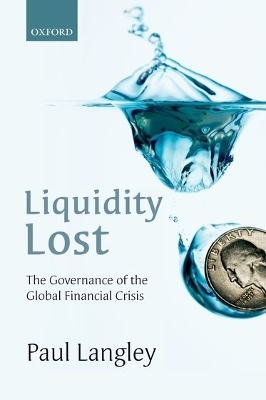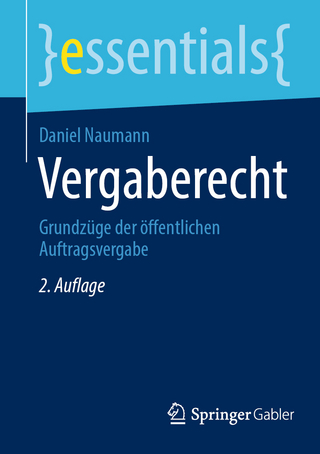
Liquidity Lost
The Governance of the Global Financial Crisis
Seiten
2016
Oxford University Press (Verlag)
978-0-19-877888-2 (ISBN)
Oxford University Press (Verlag)
978-0-19-877888-2 (ISBN)
Contributing to interdisciplinary debates in cultural economy and the social studies of finance, and grounded in extensive empirical research, this book offers an innovative analysis of how the contemporary global financial crisis was governed. The focus is on the US and UK between 2007 and 2011
The interventions of crisis management during the 2007 to 2011 financial crisis were not simply responses to a set of given developments in markets, banking or neo-liberal capitalism. Nor can those interventions be adequately explained as the actions of sovereign state officials and institutions. Instead, Langley argues, processes of crisis governance are shown to have established six principal technical problems to be acted upon: liquidity, toxicity, solvency, risk, regulation, and debt and that the governance of these technical problems, is shown to have been strategically assembled in order to secure the continuation of a particular, financialized way of life that depends upon global financial circulations.
Contributing to interdisciplinary debates in cultural economy and the social studies of finance, and grounded in extensive empirical research, this book offers an innovative analysis of how the contemporary global financial crisis was governed. Through an exploration of the interventions made by central banks, treasuries, and regulatory authorities in the Anglo-American heartland of the crisis between 2007 and 2011, experimental and strategic apparatuses of crisis governance are shown to have emerged. These discrete apparatuses established the six technical problems to be acted upon, but also shared certain proclivities and preferences. Crisis governance assembled discourses and devices of economy in relation with sovereign monetary, fiscal, and regulatory techniques, and elicited an affective atmosphere of confidence. It also sought to secure the financialized way of life which turns on the opportunities ostensibly afforded by uncertain financial circulations, and gave rise to post-crisis technical fixes designed to advance the resilience of banking and the macro-prudential regulation of financial stability. Thus, the consensus that prevails across economics, political economy, and beyond - wherein sovereign state institutions are cast as coming to the rescue of the markets, banking, or neo-liberal capitalism - conceals a great deal more than it reveals about the governance of the global financial crisis.
The interventions of crisis management during the 2007 to 2011 financial crisis were not simply responses to a set of given developments in markets, banking or neo-liberal capitalism. Nor can those interventions be adequately explained as the actions of sovereign state officials and institutions. Instead, Langley argues, processes of crisis governance are shown to have established six principal technical problems to be acted upon: liquidity, toxicity, solvency, risk, regulation, and debt and that the governance of these technical problems, is shown to have been strategically assembled in order to secure the continuation of a particular, financialized way of life that depends upon global financial circulations.
Contributing to interdisciplinary debates in cultural economy and the social studies of finance, and grounded in extensive empirical research, this book offers an innovative analysis of how the contemporary global financial crisis was governed. Through an exploration of the interventions made by central banks, treasuries, and regulatory authorities in the Anglo-American heartland of the crisis between 2007 and 2011, experimental and strategic apparatuses of crisis governance are shown to have emerged. These discrete apparatuses established the six technical problems to be acted upon, but also shared certain proclivities and preferences. Crisis governance assembled discourses and devices of economy in relation with sovereign monetary, fiscal, and regulatory techniques, and elicited an affective atmosphere of confidence. It also sought to secure the financialized way of life which turns on the opportunities ostensibly afforded by uncertain financial circulations, and gave rise to post-crisis technical fixes designed to advance the resilience of banking and the macro-prudential regulation of financial stability. Thus, the consensus that prevails across economics, political economy, and beyond - wherein sovereign state institutions are cast as coming to the rescue of the markets, banking, or neo-liberal capitalism - conceals a great deal more than it reveals about the governance of the global financial crisis.
Paul Langley is Reader in Economic Geography at the Department of Geography, Durham University, UK. He has published extensively on many aspects of global finance, and is the author of two previous books: The Everyday Life of Global Finance (Oxford University Press, 2008); and World Financial Orders (Routledge, 2002).
1: Introduction
2: Financial Crisis Governance
3: Liquidity
4: Toxicity
5: Solvency
6: Risk
7: Regulation
8: Debt
9: Conclusion
| Erscheinungsdatum | 14.04.2016 |
|---|---|
| Verlagsort | Oxford |
| Sprache | englisch |
| Maße | 157 x 234 mm |
| Gewicht | 396 g |
| Themenwelt | Sozialwissenschaften ► Politik / Verwaltung ► Staat / Verwaltung |
| Wirtschaft ► Betriebswirtschaft / Management ► Finanzierung | |
| Wirtschaft ► Volkswirtschaftslehre ► Finanzwissenschaft | |
| ISBN-10 | 0-19-877888-0 / 0198778880 |
| ISBN-13 | 978-0-19-877888-2 / 9780198778882 |
| Zustand | Neuware |
| Informationen gemäß Produktsicherheitsverordnung (GPSR) | |
| Haben Sie eine Frage zum Produkt? |
Mehr entdecken
aus dem Bereich
aus dem Bereich
Organisationen steuern, Strukturen schaffen, Prozesse gestalten
Buch | Softcover (2024)
Rehm Verlag
38,00 €
Grundzüge der öffentlichen Auftragsvergabe
Buch | Softcover (2022)
Springer Fachmedien Wiesbaden GmbH (Verlag)
14,99 €


